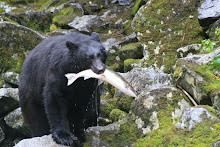
Sam Lloyd reports from the Kilembero Valley in Tanzania, where he is working for Frontier, a UK based NGO, on a conservation project that is working with the local community to protect the vital Ruipa Corridor. The resurrection of wildlife corridors is a favourite conservation issue of mine and Frontier are doing great work in this area.  Between the gargantuan Selous game reserve and the mighty Udzungwa mountains nestles the Kilombero valley. This rich tapestry of wetlands and forests once linked these two game reserves, allowing elephants, buffalo and other great beasts to pass between them. Today however the area is greatly degraded. The steady drip of deforestation has turned to a raging torrent as large numbers of immigrants have moved to the area and cleared land for great herds of cattle. There remains one dwindling hope that the two reserves can remain connected, a strip of remaining forest called the Ruipa Corridor. This potential link is currently all but vanished with a well used road blocking the way and farms encroaching on it from all directions. It would be a blow to conservation if these two reserves were to be cut off from each other, limiting genetic flow between their animal inhabitants.
Between the gargantuan Selous game reserve and the mighty Udzungwa mountains nestles the Kilombero valley. This rich tapestry of wetlands and forests once linked these two game reserves, allowing elephants, buffalo and other great beasts to pass between them. Today however the area is greatly degraded. The steady drip of deforestation has turned to a raging torrent as large numbers of immigrants have moved to the area and cleared land for great herds of cattle. There remains one dwindling hope that the two reserves can remain connected, a strip of remaining forest called the Ruipa Corridor. This potential link is currently all but vanished with a well used road blocking the way and farms encroaching on it from all directions. It would be a blow to conservation if these two reserves were to be cut off from each other, limiting genetic flow between their animal inhabitants. In a project funded by DEFRA, progress has been made to halting the destruction of this crucial natural highway, bringing together four villages in the most vulnerable area to form land management plans. These plans would crystallize an agreement between the villagers to conserve the remaining fragments, preventing them from being illegally sold or destroyed. The project has already managed to ignite the enthusiasm of the local people; at one recent meeting two hundred people turned up, many cycling four hours each way just to hear about the project. All that the plans require is for the area to be mapped so that they can be made based upon accurate land use information.
In a project funded by DEFRA, progress has been made to halting the destruction of this crucial natural highway, bringing together four villages in the most vulnerable area to form land management plans. These plans would crystallize an agreement between the villagers to conserve the remaining fragments, preventing them from being illegally sold or destroyed. The project has already managed to ignite the enthusiasm of the local people; at one recent meeting two hundred people turned up, many cycling four hours each way just to hear about the project. All that the plans require is for the area to be mapped so that they can be made based upon accurate land use information.
That’s where I and our wildlife conservation volunteers come in. The local people need the resources that the forests supply, from medicines to timber. They collectively own the resources and no conservation project in this area will succeed unless they are happy with their decision to conserve. As a conservation biologist I hope that we will be able to streamline the development of plans, both acting as mediators and giving advice. For example we are going to continue existing work and attempt to identify the most crucial fragments of the corridor to large mammals, meaning that the strongest conservation effort can be concentrated where it is most needed.
It is unsure at this stage whether this once pulsing natural artery will flow again in the future. If we are lucky it will be possible to bring this corridor back from the brink of destruction. If not then at least we hope to safeguard enough significant fragments of the corridor to allow future generations to regenerate the corridor and re-link these two reserves. I sincerely hope that it will be possible to help provide the local people with the tools to help them protect their natural resources as the uncertain future unfolds.
About Frontier
Frontier was established in 1989 as a non-profit conservation and development NGO dedicated to safeguarding biodiversity and ecosystem integrity and building sustainable livelihoods for marginalised communities in the world's poorest countries. You can find all of Frontier’s latest scientific reports by visiting the Publications area of their website.
Wednesday, June 29, 2011
Volunteer Wildlife Conservation (Tanzania)
Labels:
Africa,
guest post,
Tanzania
Subscribe to:
Post Comments (Atom)




4 comments:
You may know I've started to look very closely at NGO's in Nepal, where corruption is rampant. Nice to read about an organization like Frontier that seems to be doing such valuable work.
@barbara: Frontier seem to be doing an excellent job with their volunteer program.
Oh wow I love this! What a great way to utilize volunteers and reward them at the same time. great post, thanks a lot.
@nikela: It is a great volunteer approach. Compliments to you too for your efforts with African wildlife conservation (www.nikela.org) especially with rhinos and leopards.
Post a Comment